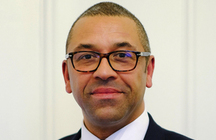Louise Haigh – 2021 Speech on Northern Ireland
The speech made by Louise Haigh, the Shadow Secretary of State for Northern Ireland, in the House of Commons on 13 April 2021.
I thank the Secretary of State for advance sight of his statement.
Twenty-three years ago this week, the Belfast Good Friday agreement was signed. The violence in recent days, some of it carried out by children with no memory of the dark days of the past, has been painful to witness. Our thoughts are with those injured, and our deep gratitude belongs with the police, community workers and leaders on the ground who have helped to restore some sense of calm in recent days.
The violence was unjustified and unjustifiable. Those adults cheering on youngsters showed a sickening disregard for their children’s futures. But recent months have shown just how fragile the peace is, and that it requires responsible and careful leadership to safeguard. As the Secretary of State has outlined, there are complex and varied factors behind the causes of the rioting—disrupted paramilitaries lashing out at the police; anger at the way in which the Bobby Storey funeral was handled last year—but there is also a very deep sense of hurt and anger among the Unionist and loyalist communities, which has been building for months and must not be ignored.
The Prime Minister made promises to the people of Northern Ireland that there would be no border with Great Britain, knowing full well that his Brexit deal would introduce barriers across the Irish sea. He made those promises because he knew that economic separation would be unacceptable to the Unionist community, and the growing political instability we are seeing has its roots in the loss of trust that that caused. Trust matters. It is what secured and has always sustained the Belfast Good Friday agreement.
In moments of instability, what Sir John Major and Tony Blair, Mo Mowlam and the right hon. Member for Skipton and Ripon (Julian Smith)—Labour and Conservative—understood was that trust, leadership and partnership are paramount to finding a way forward in Northern Ireland. As a co-guarantor to the Belfast Good Friday agreement, the Prime Minister owes it to the people of Northern Ireland to restore the trust he has squandered. He is not a casual observer to these events. He must step up and urgently convene talks with the political parties in Northern Ireland and all parties to the protocol to find solutions and political agreement.
Can the Secretary of State outline when the Prime Minister is planning to travel to Belfast to convene talks and show the leadership this moment demands? What is the strategy for addressing the loss of trust among the Unionist and loyalist communities to demonstrate that legitimate grievances are being heard? How are representatives of Northern Ireland being brought into the negotiations on huge decisions affecting their future? And can the Secretary of State detail—I have asked him this many times from this Dispatch Box—what practical solutions the Government are seeking with the EU to reduce checks and requirements between Britain and Northern Ireland? Fundamentally, the people of Northern Ireland must see that politics can work, and that the word of politicians can be trusted again.
Recent weeks have demonstrated starkly that peace is an ongoing process. It is no coincidence that violence has flared in areas of profound deprivation, where educational attainment is too low, paramilitary activity 23 years on from the agreement is still criminally high, and children are educated in segregated schools and grow up in segregated communities. For them, the promise of peace has not arrived. A toxic combination of deprivation and disregard has fuelled deep disillusionment. But we must believe that there is still a deep urge for a future where reconciliation walks hand in hand with social justice. We saw that in the courage of communities along the interface in Belfast this past week. We must now see political leaders match that courage.
This moment must mark the end of an era in which Northern Ireland has been relegated to little more than an afterthought and the promise of peace allowed to stall. It demands a collective renewal of our commitment to the agreement and the principles that secured it. It demands that the vacuum of leadership and strategy in Northern Ireland is now filled. The Prime Minister must face up to the consequences of his own actions and show the leadership that the communities are crying out for.


